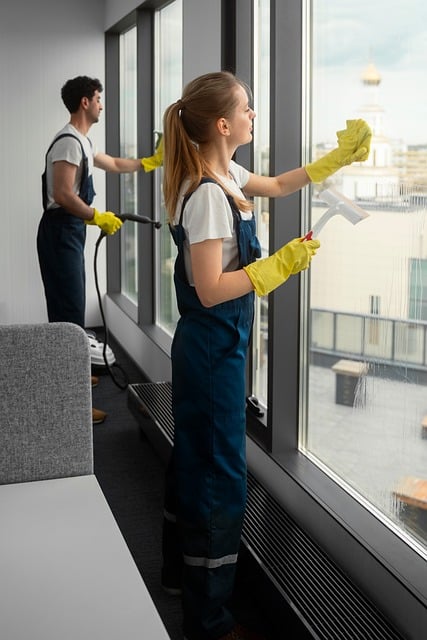Stable Opportunities in Cleaning Services: Clear Duties, Organized Environments, and Convenient Scheduling
Cleaning services represent a vital sector offering consistent work opportunities across various settings. From office buildings to healthcare facilities, cleaning positions provide structured responsibilities and the potential for long-term employment. This field continues to grow as businesses and institutions prioritize hygiene and professional maintenance standards.

The cleaning services industry encompasses a wide range of positions that support the maintenance and sanitation of commercial, residential, and institutional spaces. These roles are essential to maintaining health standards and creating welcoming environments across diverse sectors.
Clear Duties, Safe Environments, and Flexible Hours
Cleaning positions typically involve well-defined responsibilities that vary depending on the work setting. Common tasks include vacuuming, mopping, dusting, sanitizing surfaces, waste removal, and restocking supplies. In commercial settings, workers may focus on office spaces, restrooms, break rooms, and common areas. Healthcare facilities require specialized cleaning protocols to maintain sterile environments, while educational institutions need thorough daily maintenance to accommodate student and staff needs.
Work environments in cleaning services are generally organized with established routines and clear expectations. Employers provide necessary equipment and cleaning products, along with training on proper usage and safety procedures. Many positions offer scheduling flexibility, including morning, evening, or overnight shifts, which can accommodate various personal circumstances and preferences.
Safety and Compliance Are Also Essential
Workplace safety forms a cornerstone of professional cleaning services. Employers must provide appropriate personal protective equipment such as gloves, masks, and eye protection when handling chemical cleaning agents. Training programs cover proper chemical handling, equipment operation, and ergonomic techniques to prevent injury during repetitive tasks.
Compliance with health and safety regulations is mandatory across the industry. This includes following guidelines from occupational safety organizations, understanding material safety data sheets for cleaning products, and adhering to facility-specific protocols. In healthcare and food service environments, cleaning staff must complete additional certifications to meet stringent sanitation standards. Regular safety meetings and ongoing training help workers stay current with best practices and regulatory changes.
Career Progression in Cleaning Work Is Realistic
The cleaning services sector offers genuine pathways for professional development. Entry-level positions provide foundational experience that can lead to supervisory roles, team leadership positions, or specialized cleaning certifications. Workers who demonstrate reliability, attention to detail, and strong work ethics often advance to roles with increased responsibility and compensation.
Specialization opportunities exist in areas such as carpet cleaning, floor care, window washing, or biohazard remediation. Some workers transition into facility management, quality assurance, or training positions within larger organizations. Others pursue entrepreneurial paths by establishing independent cleaning businesses or franchises. Continuing education in green cleaning practices, advanced sanitation techniques, or business management can enhance career prospects.
Understanding Compensation in Cleaning Services
Compensation in cleaning services varies based on location, experience, employer type, and specialization. Entry-level positions typically start at hourly rates that align with regional minimum wage standards, while experienced workers and those in specialized roles earn higher wages. Full-time positions often include benefits such as health insurance, paid time off, and retirement contributions.
Contract cleaning companies, in-house facility teams, and independent contractors represent different employment models with varying compensation structures. Unionized positions in some regions may offer enhanced wages and benefits. Night shift and weekend work often command premium pay rates.
| Position Level | Typical Hourly Range | Additional Considerations |
|---|---|---|
| Entry-Level Cleaner | $10-$15 | Starting wages, basic tasks |
| Experienced Cleaner | $13-$18 | Proven reliability, efficiency |
| Specialized Cleaner | $15-$22 | Floor care, carpet cleaning |
| Team Leader/Supervisor | $16-$24 | Oversight responsibilities |
| Facility Manager | $20-$35 | Management, multiple sites |
Prices, rates, or cost estimates mentioned in this article are based on the latest available information but may change over time. Independent research is advised before making financial decisions.
Finding Opportunities in the Cleaning Sector
Cleaning positions are available through multiple channels. Large facility management companies hire regularly for commercial cleaning contracts. Hospitals, schools, hotels, and corporate offices often maintain in-house cleaning departments. Residential cleaning services provide opportunities for those preferring smaller-scale environments.
Job seekers can explore opportunities through online employment platforms, local staffing agencies, and direct applications to facility management companies. Networking within the industry and seeking referrals from current workers can also lead to openings. Some employers offer on-the-job training, making these positions accessible to individuals without prior experience.
Preparing for Success in Cleaning Roles
Successful cleaning professionals demonstrate attention to detail, time management skills, and physical stamina. The work requires standing, bending, lifting, and repetitive motions throughout shifts. Reliability and trustworthiness are highly valued, as cleaning staff often work independently or in small teams with access to secure areas.
Basic literacy and the ability to follow written and verbal instructions are important for understanding cleaning protocols and safety procedures. While formal education requirements are minimal, certifications in areas such as bloodborne pathogen handling or green cleaning can enhance employability and earning potential.
The cleaning services industry provides stable employment opportunities with clear expectations, organized work environments, and scheduling options that accommodate diverse needs. With proper training, safety awareness, and professional development, workers in this field can build sustainable careers while contributing to the health and appearance of the spaces where people work, learn, and receive care.




